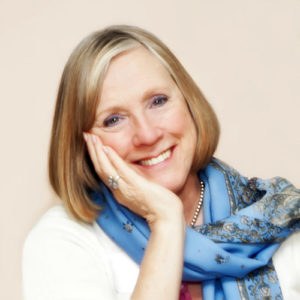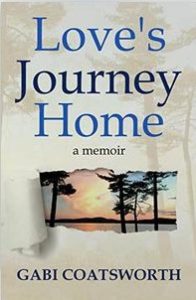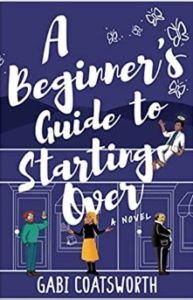Author interview and new book launch for Gabi Coatsworth
I’m so pleased to be able to welcome to my blog fellow Women’s Fiction Writer Association author Gabi Coatsworth.

Gabi is a Connecticut-based author, who made her way to New England by way of the United Kingdom. She came to work, stayed for love, and has been trying to figure the country out ever since.
Her Novel, A Beginner’s Guide to Starting Over, is her first, but hopefully not her last.
Gabi is the author of one memoir, Love’s Journey Home, and a forthcoming novel, A Beginner’s Guide to Starting Over, which came out in April.
Thanks so much for joining my blog, Gabi! How long have you been writing, and how did you begin?
I used to write in my business career – reports, brochures, and so on. But I began writing fiction and personal essays about twenty years ago. Back then, I used to write in the English style, which didn’t always work over here, but I guess my style is mid-Atlantic now, with American dialogue for American characters, but with a British sense of humor peeking through.
What do you enjoy most about writing? What do you find most challenging?
Actually, I most enjoy the first draft, where I give myself permission to write badly. Then I really enjoy myself in the editing, where over successive drafts I can improve the book bit by bit, with help from my critique partners and an editor, to make it as good as it can be.
Last year, I read (and loved) your memoir, Love’s Journey Home. (You can see my review here). How did you decide to write memoir and what did you learn in the process?
 After my husband Jay died some years ago, I began to second guess myself about our relationship. Was I fooling myself that he was the love of my life, or was it wishful thinking? Being a writer, I tend to work things out by writing about them, so I started to put my story down on paper, never intending it to be read. I learned that my husband and I really had an unbreakable bond, despite the problems we had, which brought me some peace—and that people were interested in my story.
After my husband Jay died some years ago, I began to second guess myself about our relationship. Was I fooling myself that he was the love of my life, or was it wishful thinking? Being a writer, I tend to work things out by writing about them, so I started to put my story down on paper, never intending it to be read. I learned that my husband and I really had an unbreakable bond, despite the problems we had, which brought me some peace—and that people were interested in my story.
You’ve just released your second book – a novel. Could you tell us about A Beginner’s Guide to Starting Over, and your inspiration for the story?
After Jay died, it wasn’t long before they started asking when I was going to start meeting men with a view to romance. They also wanted to know, if I didn’t believe in heaven, what did I think happened to those we’d lost?
The answer to the first question was a rather flippant, “Men are such hard work,” and to answer the second, I would say that we carry our loved ones with us always. Sometimes we talk to them, which keeps them alive in our hearts. Which led me to my heroine Molly, a 49-year-old widow who finally decides to at least take a look at an online dating site. She certainly doesn’t expect the ghost of her late husband to show up in the kitchen offering to help!
Having read the blurb and your teasers on social media, I love the premise of A Beginner’s Guide to Starting Over, and I can’t wait to read it. What do you think are some of the principal themes your novel addresses?
 I think the main theme has to do with the difficulty some of us face in letting go of the past and learning to trust that the future will be better, particularly if we’re prepared to accept help. Molly is trying to rescue her bookshop alone, to prove to herself that she can, but she can’t do it until she lets her friends give her a hand.
I think the main theme has to do with the difficulty some of us face in letting go of the past and learning to trust that the future will be better, particularly if we’re prepared to accept help. Molly is trying to rescue her bookshop alone, to prove to herself that she can, but she can’t do it until she lets her friends give her a hand.
What do you have planned in the coming weeks and months to mark the launch of your novel? Are there planned events or blog tours where readers can reach out?
I had a lovely launch at a small indie bookstore recently. They live-streamed the event, and took orders from people far and wide for personalized books, which I thought was a great idea. I have a couple of books fairs coming up—the first in a small town called Branford, which all too closely resembles my fictional town of Brentford. Hopefully, they will appreciate that my town is delightful too! I’m doing a meet-and-greet at a brand-new Barnes and Noble the day before Mother’s Day (May 14), which I hope will encourage people to buy the book as a gift. And I have library talks lined up, as well as a solid social media campaign. Fingers crossed!
I know you have also taught memoir writing craft classes. Having now written both a memoir and a novel, how would you compare the two processes?
In some ways they’re similar, in the sense that you’re telling a story that needs to hold a reader’s interest, yet be truthful. I usually tell people not to let the facts get in the way of the truth in a memoir, by which I mean that everyone’s recollections of the same event are different, so the “facts” may change depending on the point of view, but the emotional truth is what’s important. That’s true for fiction too. There’s more at stake personally with a memoir, because if people don’t like the book, they’re essentially telling you they don’t like you—at least that’s how I feel about it. Luckily, the response was overwhelmingly positive.
What are you working on next?
I have two projects on the go. One is a memoir of my British childhood, because readers of the memoir wanted to know about it. That may never be published, but at least my family will have a record. And I also have a couple of sequels to the novel in the works. One is based on a favorite 90-year-old character, which means it’s a historical novel. The second is based in the town library, and also has starting again as one of its themes.
What do you most enjoy doing when you’re not writing?
I love, swimming, reading, traveling, and keeping my languages up to date.
What advice would you give to aspiring authors?
My usual advice is—write badly. Aim low. By which I mean that you can always edit bad writing. You can’t edit nothing. Aim low means you needn’t set yourself impossible goals. Just because other writers spend four hours a day writing, doesn’t mean you should. If you aim to write for fifteen minutes, five days a week, you’ll probably exceed that and feel good. But if you set yourself a goal of an hour a day and only manage 50 minutes, you’ll feel like a failure and might give up.
We had the chance to meet through the wonderful Women’s Fiction Writers Association (WFWA) and I understand you also belong to other writers’ groups. How important are these writing communities to you and your writing career? What advice would you give to writers on the fence about joining such an organization?
I’d suggest checking out the writing organizations that offer the support and information that feels right for you. WFWA does both, with encouraging members who have a real community and regular educational programs to help me write better. There are many others like this, including the Mystery Writers of America and the Romance Writers of America. Having members that offer chances to expand your writing community is vital, because writing can be lonely. I run some writing groups in Connecticut where we don’t actually write—we get together to brag, commiserate, offer suggestions and get information. Members seem to appreciate the meetings, both in-person and on Zoom.
As an author, what is most rewarding for you about hearing back from your readers?
I love to hear that people have found something in the book they can relate to. Readers are so different, and I get emails all the time from people who’ve found varied aspects of the memoir that resonate with them. We’ll have to see about the novel!
How can readers follow you and purchase your books?
All the information they need is here: https://linktr.ee/gabicoatsworth, and I love to connect with readers!
Thanks so much for joining me today, Gabi!